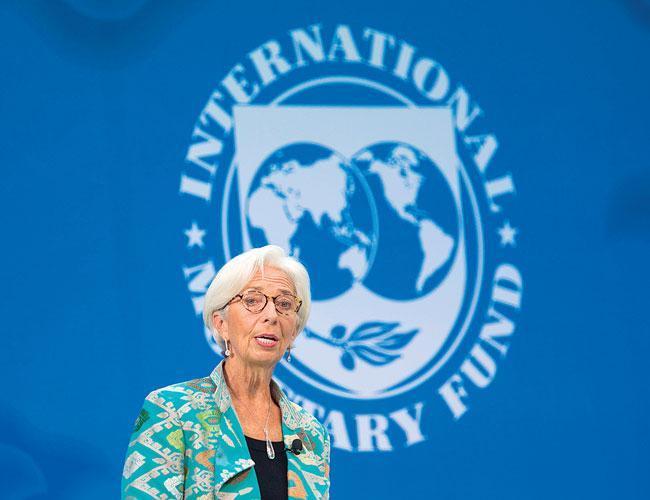
After sounding the alarm in recent years about threats to the global economy, International Monetary Fund chief Christine Lagarde said risks had begun to materialize and were slowing growth.
In a speech just hours after the United States, Mexico and Canada announced a revised North American trade agreement, Lagarde said the rise in trade barriers “is hurting not only trade itself, but also investment and manufacturing as uncertainty continues to rise.”
She signaled that the IMF would downgrade its global growth forecast next week, urged governments to de-escalate disputes and cautioned that they fail to do so at their peril.
“The stakes are high because the fracturing of global value chains could have a devastating effect on many countries, including advanced economies,” Lagarde said a speech meant to preview the IMF’s annual meeting in Bali next week.
She called on world leaders to work together to fix the global trading system rather than destroy it, to make sure the benefits were felt throughout society.
“History shows that, while it is tempting to sail alone, countries must resist the siren call of self-sufficiency - because as the Greek legends tell us, that leads to shipwreck,” she said.
“My key message today is that we need to manage the risks, step up reforms and modernize the multilateral system.”
The IMF is due to release its latest World Economic Outlook, to update forecasts in July that estimated world growth of 3.9 percent this year and next.
But Lagarde said the “outlook has since become less bright, as you will see from our updated forecast next week.”
Prior to the meeting of the Washington-based lender in April, the IMF chief issued a caution about “clouds of risk on the horizon.” She now says “some of those risks have begun to materialize” and “there are signs that global growth has plateaued.”
Economies in Europe and Japan have slowed, while China is seeing indicators its economy is experiencing “moderation,” she said.
Rising U.S. interest rates and a stronger U.S. dollar are causing outflows of capital from emerging markets.
While these factors have not yet hit financial markets, “if the current trade disputes were to escalate further, they could deliver a shock to a broader range of emerging and developing economies,” Lagarde said.
But she repeated the warning about rising debt levels which “reached an all-time high of $182 trillion -- almost 60 percent higher than in 2007.”
The new U.S.-Mexico-Canada Agreement that updates the 25-year-old regional pact could be a positive sign.
But the United States remains enmeshed in a confrontation with China that involves more than $500 billion in annual trade between the nations.
The USMCA does address services trade, which Lagarde highlights as a key element needed to modernize the global trading system.